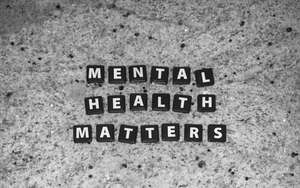
How to Be a Mental Health Ally: 4 Actionable Steps
Reading Time: 2min
Being a mental health ally means becoming someone who can truly support others when they're struggling. It doesn't require special training or having all the answers - it's about showing up with compassion and taking practical action. Here are four meaningful ways you can make a difference.
1. Learn the Language of Support
Start by understanding how to talk about mental health in a way that helps rather than harms. Learn to recognize common conditions like depression and anxiety beyond stereotypes. Practice using supportive phrases like "That sounds really difficult" instead of dismissive ones like "Just cheer up." Small changes in your language can create big changes in how safe people feel to open up.
2. Listen Without Trying to Fix
When someone shares their struggle, resist the urge to immediately offer solutions. Instead, give them your full attention. Put your phone away, make eye contact, and let them speak without interruption. Validate their feelings by saying "I believe you" or "That makes sense." Sometimes people don't need answers - they just need to feel heard and believed.
3. Check Your Judgment at the Door
Mental health challenges can make people behave in ways that seem "out of character." They might cancel plans last minute, struggle to meet commitments, or become irritable. Instead of taking it personally or judging them, try asking "Is everything okay?" rather than "Why are you being like this?" Assume they're doing their best with what they have.
4. Take Practical Action
Support becomes meaningful when it's tangible. Instead of saying "Let me know if you need anything," offer specific help: "Can I bring you dinner tonight?" or "I'm going for a walk - want to join me?" Educate yourself about local mental health resources so you can share them if asked. If you notice someone struggling consistently, gently suggest "I've noticed you've seemed down lately - have you considered talking to someone?"
Remember that being an ally isn't about being perfect. It's about showing up consistently, staying curious, and being willing to learn. Your support could be the reason someone feels less alone in their struggle. By taking these steps, you're not just helping others - you're helping create a culture where we can all be more honest about our mental health.

















